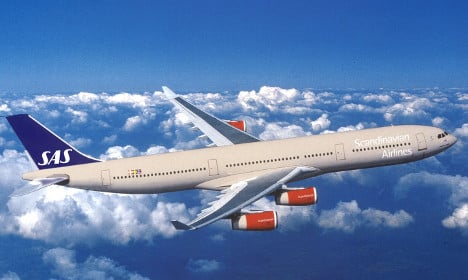“The parties have agreed on a new collective bargaining agreement and all flights in Sweden will resume as soon as possible,” the company's statement said.
Around 400 pilots based at Stockholm's Arlanda airport went on strike on Friday led by their SPF labour union, which was locked for months in bitter pay negotiations with management.
The deal to end the strike includes a 2.2 percent pay increase according to SAS, which gave no further details about the accord. The pilots had asked for a 3.5 percent raise.
“We had hoped for more, but we succeeded nevertheless to get a new pay scale for young pilots. They now have much better salaries,” Peter Larsson, union head for SAS pilots told the Swedish news agency TT.
Since the start of the strike some 1,000 domestic and European flights have been cancelled.
SAS flights should get back to normal in the next few days, the airline said.
At the Arlanda international airport, SAS had provided big screens showing football matches from the Euro 2016 in France.
Many fans had to abandon plans to travel to the Ireland-Sweden match on Monday at the Stade de France outside Paris — which ended in a 1-1 draw — or had to hastily make alternative arrangements.
SAS had refused the pay increase sought by the pilots' union, saying it would swell the airline's costs by an intolerable 6.5-10 percent.
The damaging strike came during peak travel season, and hit charter groups hard.
SAS, which is 50-percent owned by the Swedish, Danish and Norwegian states, has said it did not calculate how much money it was losing because of the strike, but financial analysts estimated it was costing the airline at least $1.2 million a day.
SAS has come under increasing pressure in recent years from low-cost rivals including Scandinavia-based Norwegian, Europe's third-largest budget airline.
While SAS returned to profit in 2015, it managed net earnings of only 171 million kronor ($20.6 million) in the second quarter of this year despite low fuel costs due to fierce competition and exchange rate swings.



 Please whitelist us to continue reading.
Please whitelist us to continue reading.